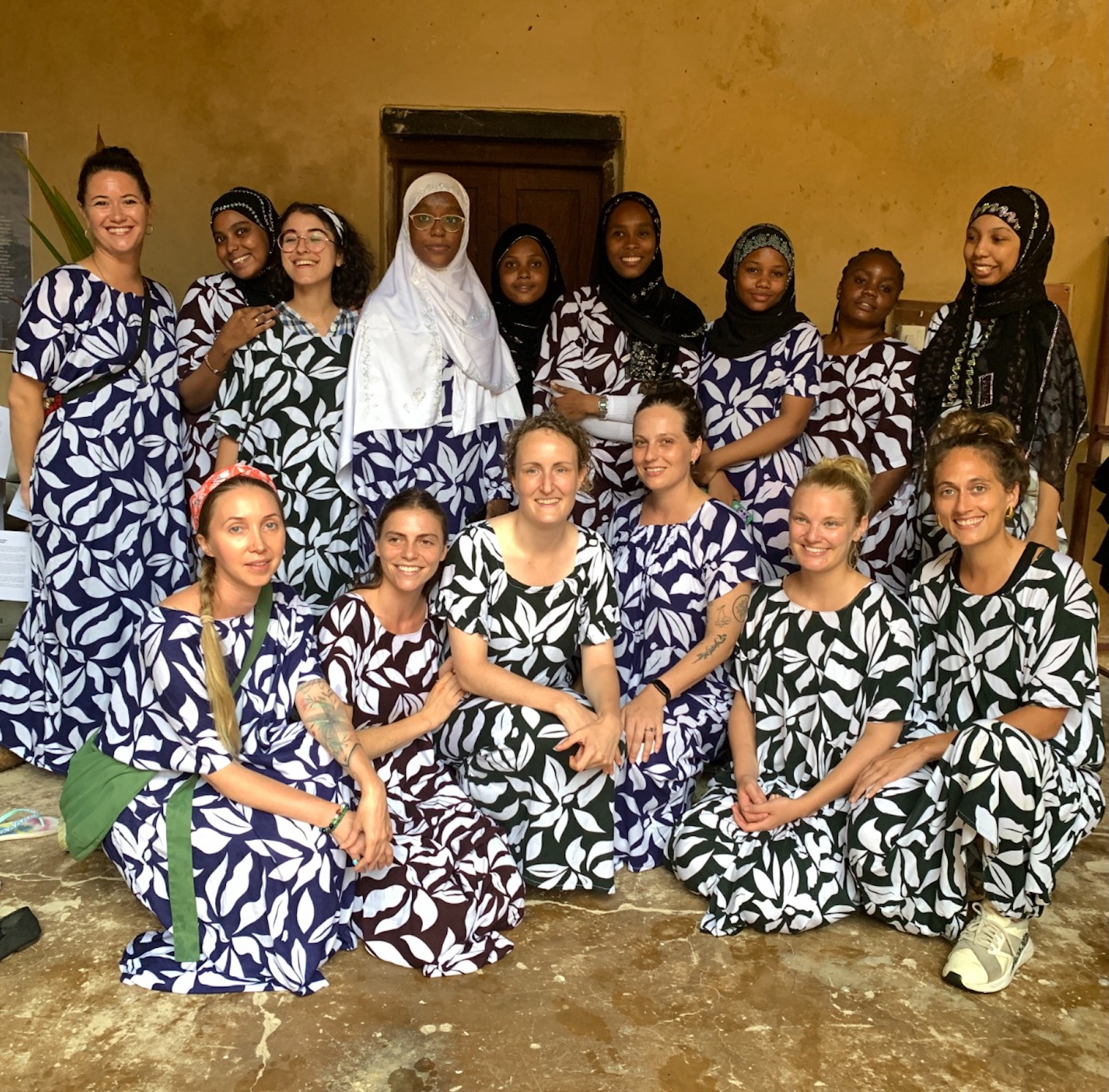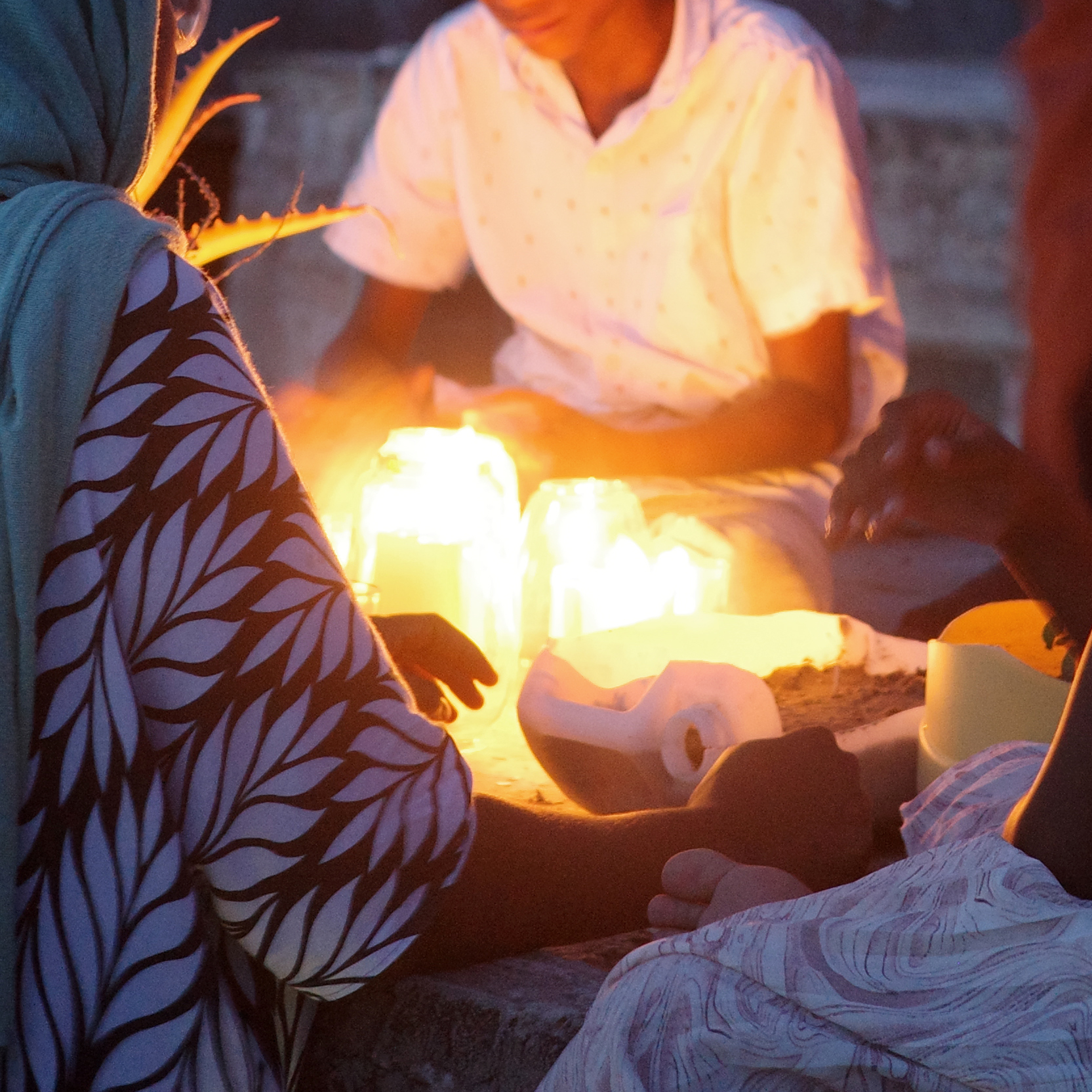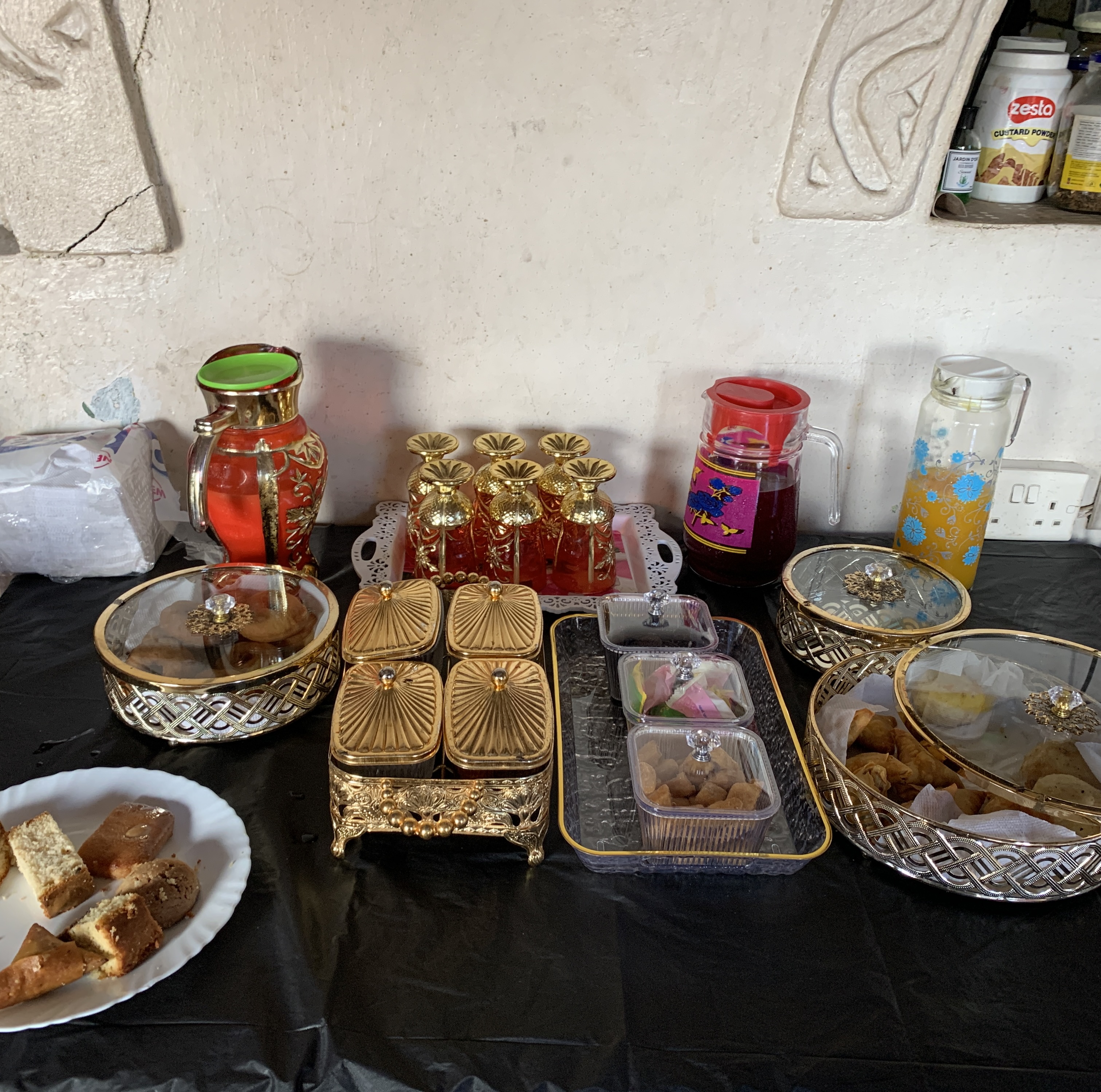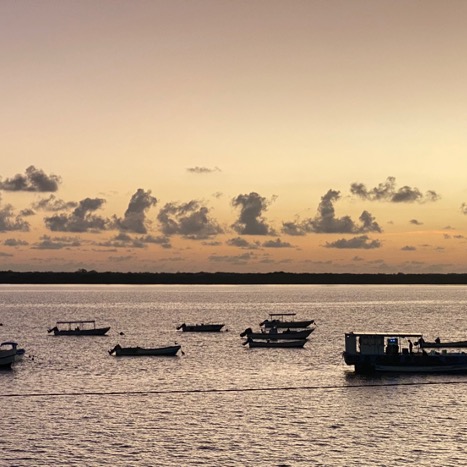Punda Pedagogy
Authors:
Maren Larsen
2024-2025
Maren Larsen
2024-2025
The research partnership between the Critical Urbanisms M.A. program and the Lamu Youth Alliance is fostered in the space of the University of Basel course “Site Immersions.” Unlike other university courses however, our encounters with the people and places that make up Lamu constitute the classroom where this course unfolds. Such a format demands innovative methods and practices of teaching that exceed typical instruction formats to meet diverse learning expectations and objectives.
Punda Pedagogy emerged as an experimental pedagogical project rooted in a commitment to teaching by doing research and sharing with students, by way of example, the evolution of research design, the implementation of different methods, and the analysis of findings related to Lamu’s donkeys or punda in Swahili. What began as an off the cuff, tongue-in-cheek suggestion of a potential research topic quickly became a research project in its own right, led by the 2024 course instructor Maren Larsen.
Punda Pedagogy emerged as an experimental pedagogical project rooted in a commitment to teaching by doing research and sharing with students, by way of example, the evolution of research design, the implementation of different methods, and the analysis of findings related to Lamu’s donkeys or punda in Swahili. What began as an off the cuff, tongue-in-cheek suggestion of a potential research topic quickly became a research project in its own right, led by the 2024 course instructor Maren Larsen.
Pedagogically, the real-time evolution and practice of investigating the myriad ways that donkeys affect and are affected by everyday urban life and city development on the island provided the instructional content of seminars and workshops. Teaching how research design, questions, and intentions were interacting with the realities of fieldwork to advance, alter, or challenge them opened up the space for honest discussions about the ups and downs, twists and turns that our individual and collective inquiries were taking in situ. Punda Pedagogy thus affords student researchers glimpses into different realities of how the research process unfolds and is shaped by different positions, events, and constraints that are usually not divulged in methodologies or final outputs of scholarly work. Beyond fieldwork, fieldnotes from the project were opened up and analyzed in and through creative writing exercises, providing a real-life and relatable example to guide student researchers’ own analytical and creative practices.

“The seminars and workshops were very useful since everyone gets to learn from each other and exchange ideas.” – LYA member
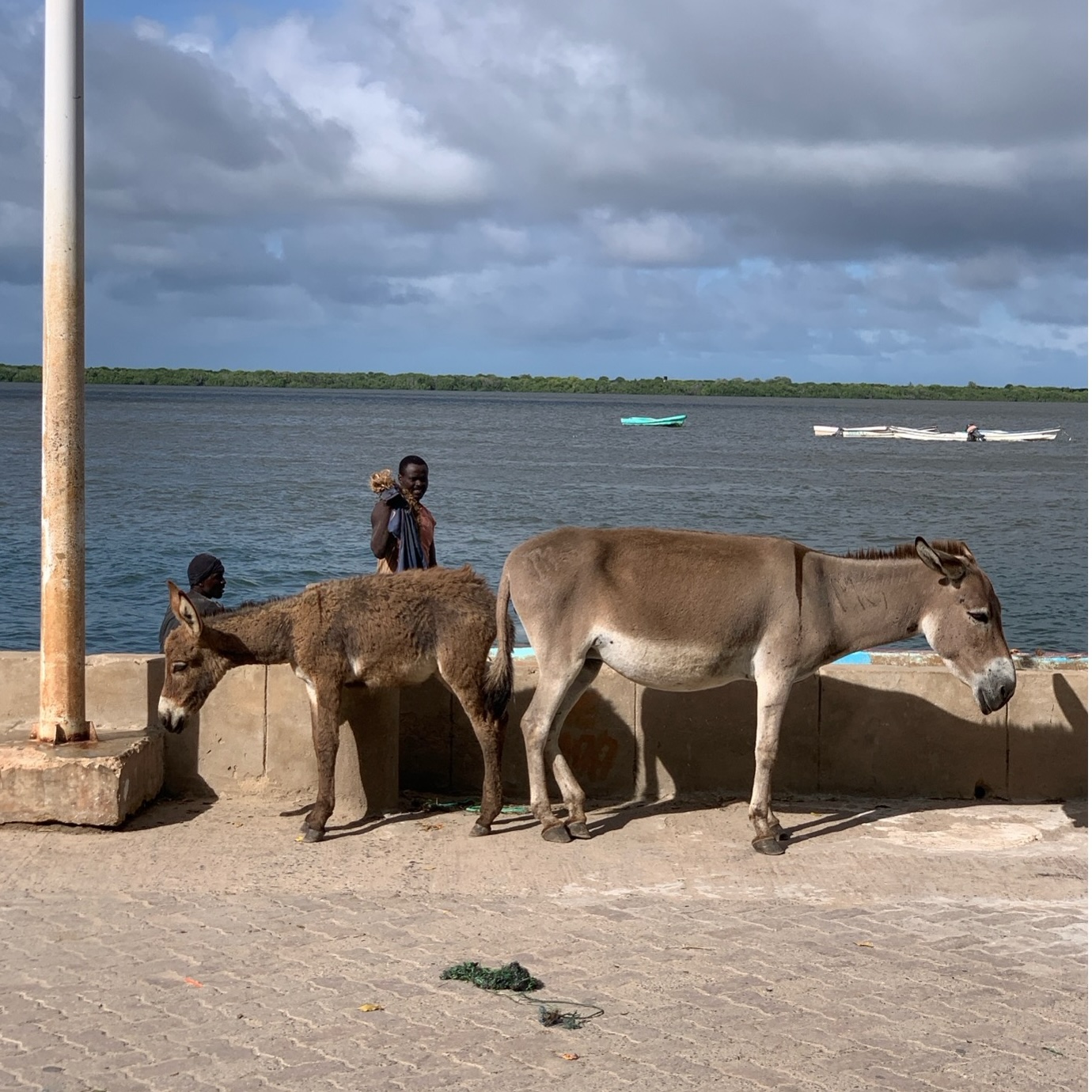
This research-teaching project not only accompanied student researchers as they designed, implemented, and analyzed their own research projects, but was reciprocally accompanied by students. Research and teaching integrated their feedback and insights from their own encounters with donkeys during their research, invited their participation in various fieldwork activities, and structured reflections and lessons for their own research projects. Some students voluntarily become participant-observers of the research and the research process itself, joining in on exploratory walks, observing interviews, attending events like World Donkey Day, and actively participating in the human labors that accompany and attend to the donkey lifecycle.
Preliminary reflections on donkey lifeworlds in Lamu raise more questions than answers. At once rigorous and, at times, amusing, Punda Pedagogy sheds light on the multi-species entanglements and consequences of urban development in Lamu and interrogates animals as infrastructural and ecological engineers shaping urbanity and urbanization.
Preliminary reflections on donkey lifeworlds in Lamu raise more questions than answers. At once rigorous and, at times, amusing, Punda Pedagogy sheds light on the multi-species entanglements and consequences of urban development in Lamu and interrogates animals as infrastructural and ecological engineers shaping urbanity and urbanization.
“Any dinosaurian beliefs that “creative” and “analytical” are contradictory and incompatible modes are standing in the path of a meteor; they are doomed for extinction” (Richardson and St. Pierre 960)
Lamu’s urban development priorities at once depend upon and, too often, neglect donkeys well-being (above and beyond individual cases of cruelty or abuse). The construction of stairways to reach the rapidly urbanizing interior of the island and (curb motorbike traffic), waste management challenges, and Islamic belief systems shape the opportunities and threats that this companion species and humans pose for one another.
The lessons and questions that Lamu’s donkeys draw our attention to equally provide a broader ground for reflections about how belief systems shape encounters, how different forms of labor are exploited, valued, or neglected, and how co-habitation is maintained across difference – all of which are relevant for meta-reflections on this research partnership itself.
The lessons and questions that Lamu’s donkeys draw our attention to equally provide a broader ground for reflections about how belief systems shape encounters, how different forms of labor are exploited, valued, or neglected, and how co-habitation is maintained across difference – all of which are relevant for meta-reflections on this research partnership itself.
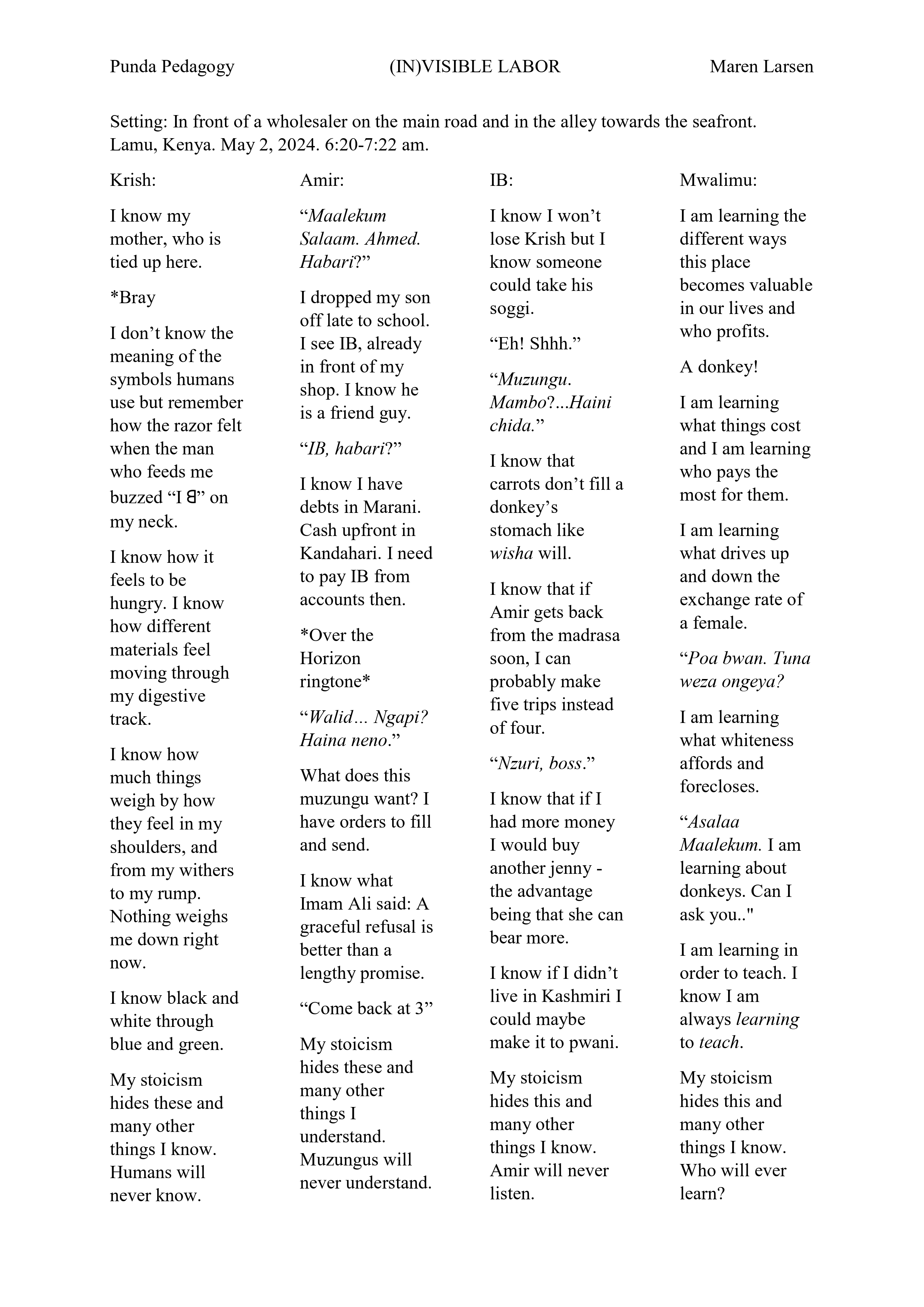
Inspired by Richardson & St. Pierre's Creative Analytical Writing Process Prompt 10 (2000, 975)
